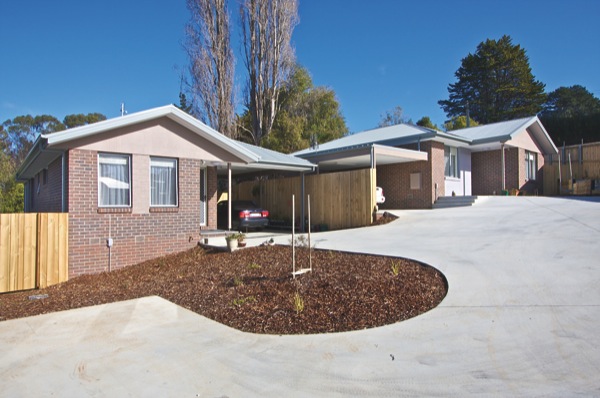Building a profile in affordable housing was “entirely consistent with our business model”, says Rowan Dowland, mecu’s General Manager Development. “We were looking at the contemporary environmental and social issues around us that were relevant to our banking business to see where we could best make a difference.
“What interests us now,” says Dowland, “is taking the next step; how safe, secure and affordable housing can make a difference to improving health, education and employment opportunities. It is also about building more resilient families.”
Supporting the sector
Loddon Mallee Housing Services (LMHS) is looking at developing over $100 million worth of projects in the next 18 months and CEO Ken Marchingo expects mecu to partner with it on at least 30 per cent, if not 50 percent of that debt.
Marchingo says “mecu has been aggressively making its presence known as a financial partner and supporter of affordable housing agencies. They’ve been conscious that we are in a deal driven environment and they have quite deliberately set out to gain market share by offering some pretty solid support to their product offering.”
That support includes working with peak bodies like PowerHousing Australia and community housing federations to build capacity in the sector.
Kicking it off
Community Housing Limited (CHL) sourced its first non-government finance through mecu. Discussions began more than four years ago but it began drawing down the first debt in the last two years. CEO Steve Bevington says, “mecu is very important to our organisation.”
“Sourcing non-government finance capital is one of the key reasons the community housing sector can grow.”
Managing risk
Financing community housing loans is not always a straight forward business, Dowland admits. This is largely because of security guarantee issues. He stresses that maintaining security for the tenant is also essential. “The last thing we would want is to be in a position where we were forced to sell an asset and have a resident left without a home.”
Aged care
Four and a half years ago Grace Bruce Homes was looking to replace its Dalkeith aged care facility. It was seeking a like-minded partner to be with them for the long term.
“Anyone can lend you money but we wanted a connection, “says Lyn Vella, CEO of Grace Bruce Homes. The tender was awarded to and since then Vella has found mecu “excellent to deal with. We have built a very good business relationship with the management in Melbourne and a partnership between the staff and tellers at the local level.” For Vella, “it’s been a really good journey.”
National expansion
Outside of Victoria, mecu has begun exploring business opportunities in the community housing sector in South Australia and Queensland, and is already operating in Tasmania and New South Wales.
Compass Housing Services, based in regional New South Wales, awarded mecu the tender to finance the purchase and construction of their properties under National Rental Affordability Scheme. In addition to government funding, Compass has a $10 million line of credit with mecu.
CEO Greg Budworth describes the credit union as a “gazelle-like organisation” that is quick and responsive in adapting to the market. The other thing he likes is that mecu treats the sector with “the respect that it deserves”.
“When community organisations like CHL, Grace Bruce Homes and Women’s Housing Limited invest with us it closes the loop,” says Dowland.
Last financial year, mecu deposits held by community sector organisations grew by 46 per cent to $148 million. Evidence, one might argue, that their groundwork in the not-for-profit sector has begun to bear fruit.












